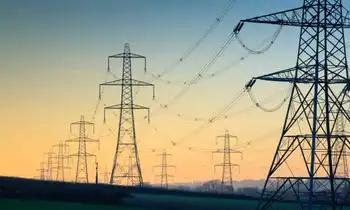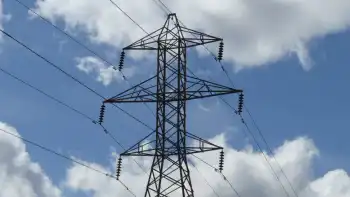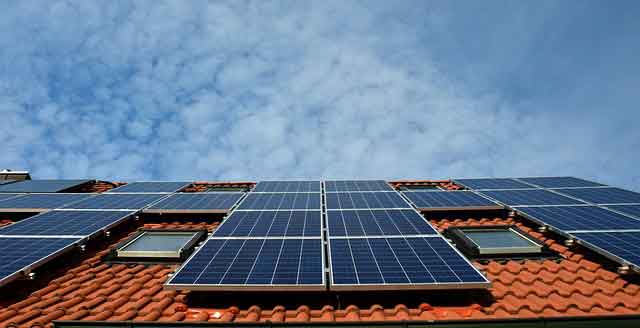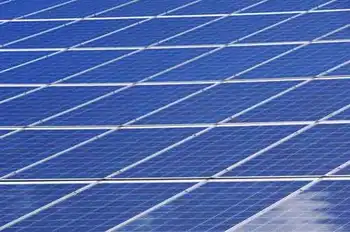Summit draws attention to vital role of nuclear
By Charlotte Regional Business Journal
High Voltage Maintenance Training Online
Our customized live online or in‑person group training can be delivered to your staff at your location.

- Live Online
- 12 hours Instructor-led
- Group Training Available
Four electric power executives comprised a morning panel of the Columbia Regional Business ReportÂ’s Energy Summit, held at the Embassy Suites hotel in Columbia.
They also agreed that the best and cleanest approach to meeting future energy needs will embrace all energy resources, including modern, cleaner coal-fired plants, solar and wind arrays, and other resources such as biomass from forest products and methane gas from landfills.
“Clean, reliable and affordable energy will require all options, but it will require us to build new nuclear plants,” said Lloyd Yates, president and CEO of Raleigh-based Progress Energy Carolinas.
South Carolina currently generates 52% of its electricity with nuclear power, the second-highest dependence on nuclear in the nation. Duke Energy is planning for two new nuclear plants near Gaffney, and a partnership of South Carolina Electric and Gas, and Santee Cooper is planning to build two units in Fairfield County.
Lonnie Carter, president and CEO of the state-owned utility Santee Cooper, added, “all resources must be integrated. And we must have coal.”
Brett Carter, president of Duke Energy Carolinas, said his company is building a new coal-fired facility just across the border in North Carolina at Cliffside that will replace 13 older coal facilities that will be decommissioned. The new Cliffside plant will generate just 60% of carbon emissions that the 13 older plants generated, he said, helping Duke Energy meet future energy demands while reducing its carbon footprint.
Carter said the electric consumer still must be brought fully into the discussion before electricity demand can be significantly reduced.
“I think we know a lot of ways to conserve energy, but we just don’t seem motivated to do them,” he said. But he said cost of energy will eventually motivate consumers to conserve. He told of a program Santee Cooper operated at its facilities 30 miles north of Charleston. Santee Cooper operated buses to carry workers to and from work.
“I didn’t think many people would ride them, but it’s been remarkably successful,” he said.
Yates agreed, saying, “cost of energy does change behavior. We live electricity-intense lifestyles.”
Duke Energy’s Brett Carter said it’s unlikely the United States will meet its clean energy goals without defining the role of coal. “We need carbon sequestration” to succeed, he said.
He also said South Carolina needs to catch up with North Carolina and pass Renewable Portfolio Standards. North Carolina has set a goal of 12.5% of its energy needs to be generated from renewable sources by 2020. South Carolina needs to let the utilities know what its standard will be, he said.
In an earlier session, lawmakers at the Energy Summit expressed concern about how new regulation in Washington could affect South Carolina.
Passing climate change legislation could send jobs fleeing to countries such as China and India where such regulations are not in force, warned Sen. Paul Campbell, R-Goose Creek, and a retired Alcoa executive. Other countries have to be on board with any broad climate change policy to avoid putting U.S. jobs at risk, Campbell said.
Something is likely to pass in Washington, so the state should be ready, said John Clark, director of the S.C. Energy Office. “I think it’s good to be proactive,” Clark said.
Affordable power is key to the stateÂ’s economic growth, and that advantage has to be preserved, said Sen. Thomas Alexander, R-Walhalla. The state also must continue to play to its advantage in nuclear power generation, he said. Clark said that the keys to that advantage are the technical experience at its long-running plants and its overall politically favorable climate toward the power source.
Panelists agreed that energy efficiency is a key way for South Carolina to cleanly improve its energy mix, and that the state has provided incentives to help homeowners and businesses. Efficiency provides “low-hanging fruit” for South Carolina to address efficiency, said Bryan Cordell, executive director of The Sustainability Institute.
Additional incentives are made difficult by the stateÂ’s fiscal troubles, Alexander said. They could be passed with the fiscal incentives to come when the economy improves, he said.











